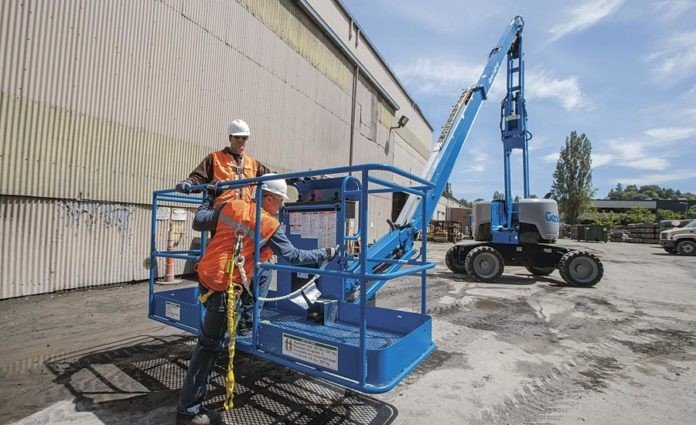Is Your Tech Future-Ready? FishersFind’s Guide to Emerging Tools
As technology continues to evolve at an unprecedented pace, businesses and individuals alike must adapt to remain competitive. From cloud computing and AI advancements to cutting-edge software tools and next-gen hardware, staying ahead of the curve has never been more crucial. In this guide, FishersFind explores the latest emerging technologies and tools, ensuring your business is not only ready for the future but thriving in it.
Cloud Computing: The Backbone of Modern Operations
Cloud computing has transitioned from a luxury to a necessity for businesses looking to scale efficiently. By leveraging remote servers to store, manage, and process data, companies can access vast computational power without needing extensive on-premise infrastructure. This shift has unlocked incredible flexibility, allowing organizations to innovate faster and collaborate more seamlessly across global teams.
Recent advancements in hybrid cloud solutions offer even more versatility. These platforms combine the best of public and private cloud infrastructures, providing a customized approach to data storage, security, and management. The ability to scale on-demand is a game-changer, particularly in industries like healthcare and finance, where sensitive data handling and compliance are paramount.
Moreover, AI integration within cloud environments is enhancing data processing capabilities, enabling smarter decision-making and real-time analytics. With tools like AWS, Microsoft Azure, and Google Cloud leading the charge, cloud computing continues to be a central pillar in ensuring a tech-ready future.
Artificial Intelligence (AI) and Machine Learning: Automation at Scale
AI and machine learning (ML) are not just buzzwords; they are transforming industries by automating tasks, improving efficiencies, and enabling data-driven insights. In the realm of business operations, AI has paved the way for personalized customer experiences, predictive analytics, and streamlined supply chain management.
Key developments include the rise of deep learning algorithms, which can analyze unstructured data such as images, audio, and video. These technologies are powering advancements in fields like autonomous vehicles, healthcare diagnostics, and robotics. Additionally, conversational AI, in the form of chatbots and virtual assistants, is enabling businesses to provide 24/7 customer support with minimal human intervention.
The real potential of AI lies in its ability to learn and adapt. With advances in reinforcement learning and unsupervised learning, AI is becoming increasingly capable of making autonomous decisions, providing businesses with a competitive edge by anticipating market trends and optimizing operations in real-time.
Blockchain and Web3: Decentralizing the Digital Economy
Blockchain, the foundation of cryptocurrencies like Bitcoin and Ethereum, is now being recognized for its broader applications, particularly in the Web3 ecosystem. Web3 represents the next phase of the internet, where decentralization is at the core, and users, not centralized authorities, control their data.
Blockchain offers unparalleled security by storing data across a distributed network, ensuring that no single entity has full control over sensitive information. In Web3, this technology facilitates peer-to-peer transactions, enabling industries like finance, art, and real estate to operate without traditional intermediaries, reducing costs and increasing transparency.
Beyond cryptocurrencies and NFTs, blockchain is revolutionizing industries like supply chain management by ensuring traceability, security, and accountability. With tools such as Ethereum 2.0 aiming to improve scalability and energy efficiency, the potential for blockchain to reshape digital transactions and data ownership is immense.
Edge Computing: Processing Data Closer to the Source
As the number of connected devices grows, so does the need for faster, more efficient data processing. Edge computing addresses this need by bringing computation closer to the data source, rather than relying on a central data center. This decentralized approach reduces latency, minimizes bandwidth usage, and enhances real-time data processing capabilities.
The importance of edge computing is growing rapidly with the proliferation of IoT (Internet of Things) devices. From smart cities to autonomous vehicles, edge computing ensures that data is processed instantly, enabling systems to make decisions in real-time. For industries like manufacturing and healthcare, this means faster diagnostics, quicker response times, and more efficient workflows.
The integration of AI and machine learning with edge computing further enhances its capabilities. For example, AI-powered devices at the edge can process data on-site and make immediate decisions, such as detecting defects in a production line or analyzing health metrics in wearable devices. As 5G networks continue to expand, edge computing will become an essential technology for the future.
5G Networks: Ultra-Fast Connectivity for Tomorrow’s Tech
5G technology is the cornerstone of the next generation of connectivity. Offering speeds up to 100 times faster than 4G, 5G opens up new possibilities for industries relying on high-speed data, such as augmented reality (AR), virtual reality (VR), and IoT.
The key advantage of 5G is its low latency, which is essential for real-time applications like remote surgery, self-driving cars, and smart cities. By providing near-instantaneous communication between devices, 5G will allow for the seamless integration of AI, blockchain, and other emerging technologies.
In addition to its impact on consumer devices, 5G has enormous potential in sectors like logistics, where autonomous delivery drones and trucks require reliable, high-speed connectivity. As the global rollout of 5G continues, its ability to support an interconnected ecosystem of devices will drive innovation across industries.
Quantum Computing: Pushing the Limits of Computing Power
Quantum computing is on the horizon as one of the most transformative technologies. Unlike classical computers that process information in binary, quantum computers use qubits, which can represent multiple states simultaneously. This enables them to solve problems at speeds far beyond the capabilities of traditional machines.
Though still in its early stages, quantum computing promises breakthroughs in areas like cryptography, drug discovery, and complex simulations. For example, in the pharmaceutical industry, quantum computing could enable the rapid simulation of molecular structures, leading to faster development of new drugs.
Challenges remain in developing stable quantum systems, but advancements in quantum error correction and qubit stability are bringing us closer to a practical, large-scale quantum computer. The implications for businesses in fields like finance and logistics are immense, as quantum computing could enable faster data encryption, optimization, and real-time decision-making.
Augmented Reality (AR) and Virtual Reality (VR): Bridging Physical and Digital Worlds
AR and VR are no longer confined to the gaming industry. These immersive technologies are being integrated into education, training, retail, and healthcare, offering enhanced experiences that bridge the gap between the digital and physical worlds.
In education, AR and VR are transforming how students interact with course material, providing interactive lessons and simulations that make learning more engaging and effective. In retail, virtual showrooms and AR-enabled shopping experiences allow consumers to try products virtually before making a purchase, improving both convenience and satisfaction.
For healthcare, AR is being used for enhanced surgeries and diagnostic procedures, allowing doctors to overlay critical information onto a patient’s body during operations. Meanwhile, VR is proving invaluable in therapy, helping patients manage pain, anxiety, and PTSD by immersing them in calming virtual environments.
Conclusion: Building a Tech-Ready Future
As we move toward a more interconnected, data-driven world, staying ahead of emerging tech trends is essential for businesses and individuals. From cloud computing and AI to blockchain, edge computing, and quantum advancements, the tools shaping the future are already here. By embracing these technologies, organizations can streamline operations, improve customer experiences, and drive innovation.
To be truly future-ready, it’s critical to not only understand these tools but also integrate them strategically into your business. As technology continues to evolve, those who stay informed and adaptable will lead the way in the next digital revolution.







